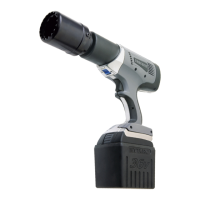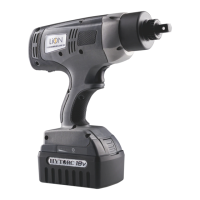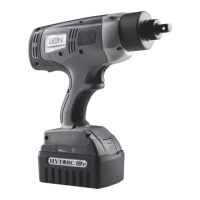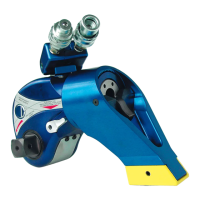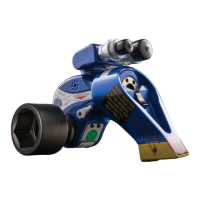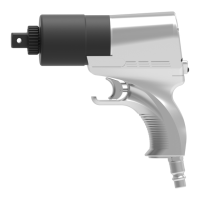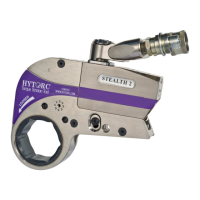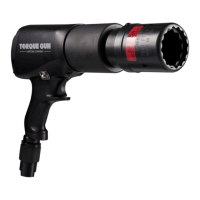LITHIUM SERIES® II Electric Torque Tool Operations Manual
4
I. IMPORTANT BATTERY CHARGER SAFETY INSTRUCTIONS
• Beore using charger, read all instructions and cautionary markings on charger, battery pack and product
using battery pack
• DO NOT attempt to charge the battery pack with any chargers other than the one in this manual. The charger
and battery pack are speciically designed to work together.
• These chargers are not intended or any uses other than batteries supplied with LITHIUM SERIES Tools as
described in this manual. Any other uses may result in risk o ire, electric shock or electrocution.
• Do not expose charger to rain or snow
• To disconnect charger, irmly grasp plug and remove. Do not disconnect the charger by pulling on the cord.
• Make sure the cord is located so that it will not be stepped on, tripped over, or otherwise subjected to
damage or stress
• Do not use an extension cord unless it is absolutely necessary
• An extension cord must have adequate wire size (AWG) or saety. In general the larger the wire size the greater
the capacity o the cable.
• Do not block any ventilation slots on charger power supply
• To clean the charger, irst unplug rom the power source, then wipe with a dry cloth
WARNING
Burn hazard. Battery liquid may be lammable i exposed to spark or lame.
WARNING
Burn hazard. To reduce the risk o injury, charge only tool batteries. Other types o batteries
may burst causing personal injury and damage.
CAUTION
Under certain conditions, with the charger plugged into the power supply, the charger
can be shorted by oreign material. Foreign materials o a conductive nature such as, but
not limited to, steel wool, aluminum oil, or any buildup o metallic particles should be kept
away rom charger cavities. Always unplug the charger rom the power supply when there
is no battery pack in the cavity. Unplug charger beore attempting to clean.
J. EMISSIONS
• The noise emission, measured in accordance with EN I., is as ollows:
– Aweighted sound pressure level L
pA
does not exceed 7 dB(A)
– Aweighted sound power level L
WA
= 8. dB(A) and its uncertainty K
WA
= 3dB(A)
• Wear hearing protection when required by job conditions
• The vibration total value and its uncertainty measured in accordance with EN I. is as ollows:
– The vibration total value does not exceed .5 m/s
• The declared vibration total value has been measured in accordance with a standard test method and may
be used or comparing one tool with another
• The declared vibration total value may also be used in a preliminary assessment o exposure
• The vibration emission during actual use o the tool can difer rom the declared total value depending on the
ways in which the tool is used
• Identiy saety measures to protect the operator that are based on an estimation o exposure in the actual
conditions o use (taking account o all parts o the operating cycle such as the times when the tool is
switched of and when it is running idle in addition to the trigger time)
(CO NT ’ D .)

